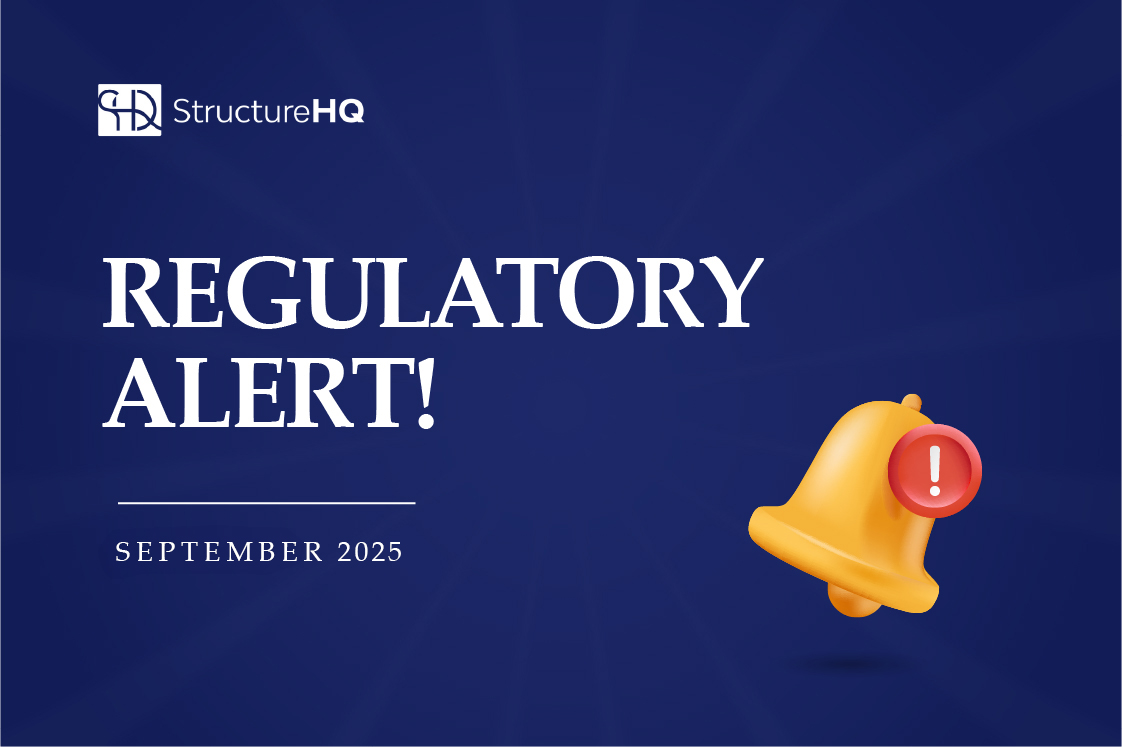The Role of Corporate Governance in Fostering Investors’ Confidence
Introduction
The dynamics of corporate governance and investor confidence vary by jurisdiction, and this is because it takes its root from the economic realities within which these governance principles are applied, and like a typical cause-and-effect relationship, the enhancement of corporate governance frameworks ultimately boosts investor confidence and vice versa. Investor confidence refers to investors’ willingness to engage in investment opportunities and associated intermediation channels available to them based on their perception of risk and return. It connotes optimism and trust in the system, which is built over time from economic stability.
Investor confidence has always been a subject of interest in the financial market, and for Nigeria, the last couple of years have seen the country grapple to maintain and attract foreign investment. This realization has informed the various economic reforms that the government has tried to put in place. However, it is important to note that the efforts to boost investor confidence in every economy do not lie solely on the government’s shoulders but extend to corporate entities and the operations of the various established economic infrastructure. This piece seeks to examine the relationship between corporate governance and investor confidence, highlighting different case studies and the continuous drive by the regulators to ensure compliance in Nigeria.
The Relationship between Corporate Governance and Investors’ Confidence
One may be curious as to how corporate governance influences investor confidence and vice versa; a cursory look at both concepts will provide clarity. Corporate governance is defined as the principles, processes, and systems by which a company is directed, entailing the establishment of efficient structures that ensure accountability, transparency, oversight, and ethical practices to promote the growth of a business and ensure the sustainability of any corporate entity. Investor confidence, on the other hand, emphasizes the trust and assurance that investors have in the financial market and ultimately the companies they invest in. This trust can only be established by effective management, ethical standards, and good financial health of such entities.
Investors’ confidence, as explained above, is bordered by various factors that may fluctuate due to several factors other than corporate governance frameworks. Some of these influencing factors are economic data providing insight into market health and risk indicators, the political environment of a country informed by policies and regulatory framework, and corporate earnings reports reflecting growth level and earning opportunities for various entities. The importance of increased investor confidence cannot be overemphasized, especially for developing countries such as Nigeria.
The relationship between corporate governance and investor relations can be further explained below as follows:
a. Trust and Transparency
Good governance measures ensure transparency and accountability in a business, and these are common traits that boost investor confidence. It helps investors believe that their money/assets are managed efficiently. Trust and transparency involve full, timely, and proper disclosure of the financial performance, policies, and strategic information of a company to its stakeholders and the public, where necessary.
b. Risk Reduction
Proper governance frameworks minimize the risk of fraud, mismanagement, regulatory infringements, and other elements of risk that could affect a company negatively. The ability of a company to identify, manage, minimize, and ultimately control its risk incidents spells good control and risk oversight, which attracts investors and builds their trust in the system.
c. Long-term Value Creation
Whilst short-term investments and partnerships are good, the overall goal of every economy is to ensure long-term economic growth and a stable investment environment. Corporate governance helps to promote sustainability by ensuring succession planning, setting corporate goals and mission, strong leadership, and other requirements for creating value.
d. Shareholder Protection and Stakeholder Management
Here, good governance systems provide a platform for the protection of shareholders' rights and management of stakeholders' interests. Increased investor confidence is evidence of an assurance of protected interests and good stakeholder involvement. It is also an indication that minority interests are considered, and the investors’ voices matter to the company.
A company with a good governance system will attract more investment, giving it access to more capital, resulting in business growth and profitability. Thus, where this standard is established across various corporate structures in Nigeria, the country will be sure to experience increased economic stability, amongst other factors.
Case Studies: The Nigerian Landscape
Looking at the Nigerian investment landscape, it is remarkable how having good governance structures has contributed to accelerating the growth of some corporate entities in Nigeria. To further buttress this position, we will review the case of Johnvents Industries, a Nigerian agribusiness company that secured a $40.5 million investment in February 2025 from the UK's development finance institution, British International Investment, to expand its cocoa processing capacity. This investment was to help Johnvents achieve its 90% certification under the Rainforest Alliance sustainability and traceability program by 2027, reflecting its commitment to sustainability and good governance. [1] [2]
Looking at its governance structure, the Company operates under a group structure and only recently, they welcomed Ayo Akinola, Peter Van Den Hengel, and Professor Folake Samuel to their Board to strengthen their governance and strategic goals further. Also, the Company has exemplified its ability to align its decisions with the outlined corporate vision and strategic roadmap, setting it apart in the African agricultural industry and causing it to gain momentum as well as access to funding.
Another case study is The Nigerian National Petroleum Company (“NNPC”). In March 2025, the NNPC announced that it was in the final stages of preparation for an initial public offering, following several unsuccessful attempts in previous years. This came after President Bola Ahmed Tinubu reshuffled the entire 11-person board and appointed Bashir Bayo Ojulari and Ahmadu Musa Kida as CEO and Chairman, respectively, bringing in individuals with not just the required technical competence but also experience operating within the competitive oil and gas industry. [3] [4]
This corporate restructuring action can be interpreted as the government’s attempt to reimagine NNPC as a commercially viable, investor-facing institution to attract investment from the public. This further affirms the role good governance plays in investor relations. Thus, a newly listed NNPC still has to demonstrate to the public that it is transparent, trustworthy, and capable of making good decisions that will positively impact its shareholders. However, following the reconstruction of the Board, the Company still has to ensure it implements systems that support internal control, strategic planning, and legal compliance, which are the key values of a public company.
We can also review the capitalization process that the CBN announced for commercial banks early in the year. The Central Bank of Nigeria announced its recapitalization plans for commercial banks in Nigeria and, in support, circularized the guidelines for the banks’ utilization in April 2024. As a result, Nigerian Banks were pushed into the financial market to source funds either through a Private Placement, Public Offer, or Rights Issue. This ultimately threw up the conversations on corporate governance testing Nigerian banks on their history of consistent, solid performances, ethical business practices, a well-established succession plan, transparency, risk management, and inclusivity.
Furthermore, the Securities and Exchange Commission (SEC) released a comprehensive framework for the 2024 banking sector capitalization programme, providing detailed guidance for all participants in the recapitalization process. This framework emphasized the appropriate governance structure to ensure the capital-raising process is conducted efficiently, transparently, and in a manner that protects all stakeholders’ interests.
Out of the 43 licensed deposit money banks in Nigeria, only a few have met and/or surpassed the CBN capitalization requirements as of September 2025. A contributory factor to meeting this benchmark was their consistency, good performance, and a track record of paying dividends over the years, which appealed to institutional, retail investors, and other high-net-worth individuals.
Regulatory Framework for Good Corporate Governance in Nigeria
Nigeria has a robust framework for corporate governance compliance, which will promote investor confidence in both the private and public sectors if adhered to. They are highlighted below as follows:
- Corporate Governance Code (NCCG 2018)
This was issued by the Financial Reporting Council of Nigeria (FRCN), replacing sector-specific codes with a unified framework. The Code applies to companies of varying sizes and complexities across industries and consists of seven parts, which address: the Board of Directors and Officers of the Board, assurance, relationship with shareholders, business conduct with ethics, sustainability, and transparency. [5] - Central Bank of Nigeria (CBN) Guidelines
This code introduced specific corporate governance principles for banks, financial institutions, and all regulated entities by the CBN, its applicability being determined by the scope of business of each entity and the limits of the license obtained. Whilst the different codes highlight the various areas of corporate governance and directors' code of conduct, the guiding principles are centred on mandatory improved governance reporting, assessment of board competence, risk management, independent directors, and independent performance evaluations. - Nigerian Exchange Group (NGX) Listing Rules
This applies to public companies listed on the Capital market and is strictly monitored by the NGX. Thus, public companies must ensure compliance or risk delisting. The rules address mandatory disclosures on board composition and gender diversity, certification of financial statements, governance scorecards for investor evaluation, as well as other sustainability disclosures to align with ESG principles. - Companies and Allied Matters Act (CAMA) 2020
CAMA is the foundation of corporate governance compliance in Nigeria as it lays down the background principles on incorporation, control, sustainability, and ethical practice for every corporate and business entity, as well as non-profit organizations in Nigeria. The Act provides for shareholder rights and other forums for investor relations, both for private and public companies. It mandates the necessary disclosures and supports digital governance and key transparency measures. The Act was recently amended in 2020 and is monitored by the Corporate Affairs Commission. - Securities and Exchange Commission (SEC) Guidelines
The Securities and Exchange Commission also introduced its Code of Corporate Governance for Public Companies. This is part of its Capital Market Master Plan to reform the governance of listed entities. The focus of the Code is on the promotion of board diversity, directors’ code of ethics, internal control, and stakeholder management. Other areas of focus of the Commission have been on the supervision of mergers and acquisitions to ensure governance post-deal. - Other Governance Regulatory Frameworks
Other governance regulations include the National Cybersecurity Policy (2021) and the Whistleblower Protection Act (2022). These regulations are monitored by the CBN, SEC, the Independent Corrupt Practices and Other Related Offences Commission (ICPC), the Economic and Financial Crimes Commission (EFCC), as well as the Nigeria Extractive Industries Transparency Initiative (NEITI) which focuses on cybersecurity strategies, and anticorruption compliance monitoring within the private and public sectors in Nigeria.
Conclusion
It is evident that a compelling link exists between good corporate governance adherence and heightened investor confidence. For Nigeria, it is even more important that companies take appropriate steps to strengthen board oversight, ensure transparent financial reporting, and embed rigorous risk-management and compliance systems to send the right signal to both domestic and international investors that their resources are managed efficiently and ethically. The regulatory framework highlighted above has created more uniform expectations around transparency and board oversight.
Also, empirical evidence from the case studies examined above recently underscores this relationship. Banks that proactively embraced stronger governance structures met new capital thresholds more swiftly and attracted broader investor participation. Similarly, non-bank corporates like Johnvents Industries leveraged proven governance and sustainability credentials to secure development finance at favorable terms. Each success story reinforces the notion that investors—both institutional and retail—place a premium on governance quality as a proxy for long-term stability and value creation.
Looking forward, continued progress will depend on deepening enforcement, expanding capacity-building for directors and audit committees, and fostering a culture in which ethical conduct is rewarded at every organizational level. As Nigeria refines its regulatory architecture and companies internalize best practices, investor confidence is poised to grow further, unlocking capital flows that can drive sustainable growth, innovation, and competitiveness across the economy.
References
- “Nigerian cocoa processor Johnvents receives investment from Britain to expand.” Reuters, February 18, 2025. https://www.reuters.com/markets/commodities/nigerian-cocoa-processor-johnvents-receives-investment-britain-expand-2025-02-18/
- “Johnvents Group and BII partner to drive sustainability and growth in Nigeria’s cocoa sector with $40.5m investment.” British International Investment, February 18, 2025. https://www.bii.co.uk/en/news-insight/news/johnvents-group-and-bii-partner-to-drive-sustainability-and-growth-in-nigerias-cocoa-sector-with-40-5m-investment/
- “Tinubu sacks NNPC Group CEO, appoints Bayo Ojulari.” Business Times Nigeria, April 3, 2025. https://www.businesstimes.com.ng/2025/04/tinubu-sacks-nnpc-group-ceo-appoints-bayo-ojulari/
- “Full List Of New NNPC Limited Board Members.” The Times Nigeria, April 2, 2025. https://www.thetimes.com.ng/2025/04/full-list-of-new-nnpc-limited-board-members/
- Amujo–Akomolafe, M. “Legal Framework for Corporate Governance in Nigeria: An Appraisal of the 2018 Code of Corporate Governance.” ABUAD Private and Business Law Journal, Vol 2 No 1 (2018). https://journals.abuad.edu.ng/index.php/apbjl/article/view/205
.jpg)










